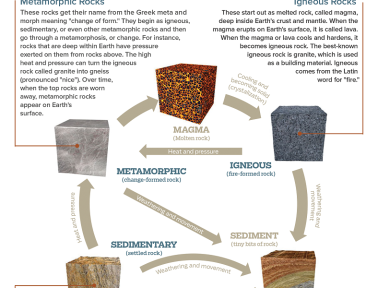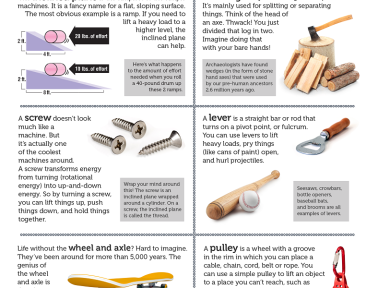” Utilize your words.”
It’s a preferred expression grownups say when youngsters are acting out. As well as kids do need to discover just how to successfully interact vocally in order to relocate far from interacting behaviorally. Yet in order to use their words, they have to have the words.
We need to be intentional in showing our children the social manuscripts they need to browse the social tides of life. By educating youngsters a few easy phrases, they rapidly acknowledge them as you instructor them with normal chances for trouble resolving, as well as soon they really feel comfortable sufficient with them to utilize them separately.
If I had to select one expression that I have seen make the most distinction for kids in social scenarios, it would be these 9 words:
” Can I have a turn when you’re done please?”
Doesn’t appear wonderful, does it?
However right here’s why I’ve seen it produce remarkable results in the middle of regular childhood tiffs.
Sharing and transform taking are points we value as adults, however they are incredibly obscure idea for youngsters. A lot of the time, children actually just comprehend exactly how they function when it pertains to making certain they obtain their turns! With their developing lens, numerous preschoolers stick to the approach that “What’s your is mine and also what’s mine is mine.” This is why “He’s not sharing!” or “She took my toy!” is such a constant problem at preschools and also play days.
Commonly, our action is to force sharing. (Or at least the look of sharing!) We set timers or pry something from their clinched little hands, in an initiative to bring back order. Yet as I’ve taught in my ebooks and ecourse, this approach burglarizes youngsters of essential problem addressing method and possibilities to create their own social abilities. We might value peace and order as grownups, yet youngsters need a manageable amount of conflict and also chaos to give them purposeful social ability practice.
Offered their own tools and manuscripts along with appropriate opportunities to practice, children will not just gain the abilities they require to be socially skilled, yet they’ll additionally enhance their confidence in their very own ability to solve their very own troubles.
( The combined result suggests less whining and tattling for you to pay attention to!)
When we coach a kid through the procedure of asking, “Can I have a turn when you’re done please?” we interact numerous bottom lines that reduce the process for both youngsters included.
1. I want a turn. This empowers the youngster who is asking. It aids the child to know it’s ALRIGHT to interact your wants and needs to others, and that you can and also should do that plainly and nicely.
2. You reach end up. The magic ingredient in this expression is “when you’re done”. It communicates to the child in property of the object that no one is attempting to take it away or require them to “share”. It lets them feel a feeling of control, which usually has the result of softening the kid’s white knuckled hold.
Without these three additional words, kids just hear that they are losing something– that a person is taking something far from them. With those three words, factor to consider is offered to the child with the item. Rather than losing a things, they are gaining an aspect of control.
I have actually seen time and again as two youngsters have actually fought passionately over an item, after that had an interfering adult introduce this nine word phrase. Extra times than not the child that is in ownership of the object is done within an issue of mins (or perhaps seconds!)– however only when they get to do it on their terms. The battle wasn’t about who had the object as much as it had to do with who had the power.
What concerning when the child does not hand it over so promptly?
Often you can coach youngsters through this phrase and also merely follow up with, “So Ben, when you’re done, locate Skies and also make sure she gets the next turn, OK?” which is that. The two effortlessly make the switch-a-roo by themselves moments later.
Occasionally you instructor them with the dialogue and the kid in belongings claims, “I’ll never ever be done!”
There are a couple of points you might do here, relying on the circumstance and the characters of the children entailed. You can keep points light as well as merely state, “Well, there are many enjoyable points to do below, I doubt you’ll want to play with that F O R E V E R! So when you determine you’re done, just make certain you provide it to Sky to make sure that she can be following.” For other children you might need to say, “Well, I understand some children like to utilize timers to make a decision when their turns more than. Do you two wish to try that? Ben, just how much more time do you assume you need?” If the two agree on a practical number, excellent! Aid the children set a timer, as well as offer it to among them, so that they can be accountable. (This is my all-time, absolute, favorite timer for children, by the way.It makes the fuzzy concept of time much more concrete! * associate link) If they don’t come up with a reasonable number (” 14 hours!”), you may have to offer a couple of ideas and allow them choose from those.
After scaffolding your children or your course through a few of these interactions, soon you’ll locate them using the expression by themselves a whole lot more, as well as asking you to play umpire a great deal less!
Want to educate more turn-taking skills? Read Let’s Negotiate: Training Children the Art of Trading, below on NJC!
If encouraging youngsters as trouble solvers rate of interests you, you’ll enjoy section 1 of this year’s Read Along, It’s OKAY Not to Share and also Various Other Abandoner Guidelines for Raising Competent and also Compassionate Children (* affiliate link). I’ll be publishing regarding Section 1 on January 28th, and would love to include your thoughts in my discussion with author Heather Shumaker shortly after. So grab your duplicate and also jump in!










